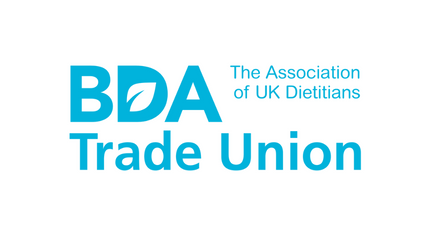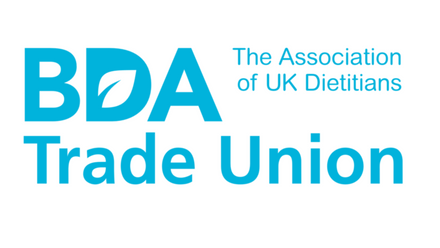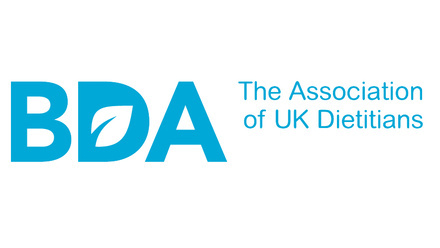On 5 July we celebrate a pioneering institution that benefits us all, where so many of our members devote their lives to and go above and beyond to support.
Since 1948, the NHS has provided free healthcare in Britain. The principle of free healthcare at the point of delivery is cherished. According to NHS England nine in 10 people agree that healthcare should be free of charge and more than four in five agree that it should be available to everyone when they need it.
Dietetics has been a fundamental part of the NHS since its infancy and the availability and practice of dietitians continues to develop and grow, along with the NHS. This should be good news to the 73.7% of people that strongly or tend to support the idea of having a readily available dietitian, for example at a GP practice. (BDA and YouGov survey 2023.)
Let’s take a look at the history of dietetics in the NHS
Before the NHS
1920-30s
The UK’s first dietetic department was established in 1924 and run by Ruth Pybus, a Sister at the Royal Infirmary in Edinburgh.
Work began in the out-patient department where Ruth set out to prove that dietetic out-patient care could save a number of admissions to hospital.
The need for a professional body increased and the inaugural meeting of The British Dietetic Association (BDA) took place on January 24 1936 at St Thomas’s Hospital in London.
When War broke out in 1939, there were around 150 members of the BDA, working in hospitals around the UK.
1940s
The then Health Minister Aneurin Bevan, under Clement Attlee’s Labour Party, embarked on establishing the National Health Service in 1948. For the first time healthcare was available for free, regardless of income and in its infancy everything from eye tests, hearing tests, prescriptions and hospital care were free.
After the War there were serious labour shortages, so workers from the Caribbean and Ireland were recruited to fill the gaps in the NHS. Later, workers from South Asia and Africa were recruited too. These workers were critical to the formation of the NHS.
1960s
Up until the mid-sixties, dietetic practice was largely confined to diabetic and weight-reducing diets and a variety of gastric and low-fat diets. But as the profession became more established, the demand for expansion increased. Statistics show that in the 1960s around 45 students qualified as dietitians each year but by 1965, 233 students were in training.
Dietitians were first registered with the Council for Professions Supplementary to Medicine (CPSM), a predecessor to the HCPC in 1963.
1970s
In 1974, the NHS underwent a major reorganisation and created health districts, paving the way for dietitians to provide nutritional services to areas of the NHS that had previously never had any dietetic input, such as psychiatric and geriatric hospitals.
Health and nutrition issues moved higher up the political agenda and in 1978, the former Department for Health and Social Security (DHSS) published a booklet on ‘Eating for Health’ and the Health Education Council launched its ‘Look after yourself’ campaign to encourage good eating habits and increased exercise.
1990s
The 1990s heralded a decade of real change as the NHS moved towards a more patient-centred service. The first wave of 57 NHS Trusts came into being in 1991, followed by further developments which focused on public health issues.
The Department of Health produced a key document called ‘The Health of the Nation’ in 1992 as obesity and other diet and lifestyle-related issues took hold. The document recognised the contribution of State Registered Dietitians.
In the United Kingdom, devolved government was created following simple majority referendums in Wales and Scotland in September 1997. In 1998, the Scottish Executive, National Assembly for Wales and Northern Ireland Assembly were established by law. This meant that each country had its own health system, which created challenges for the BDA but also new opportunities.
The BDA went on to develop Country Boards representing Wales, Scotland, Northern Ireland and England to support its members in the home countries, drive policy and lead on media and health strategy to promote the work of dietitians.
And more recently…
The Health Professions Council (now the Health and Care Professions Council - HCPC) was launched in 2001 to regulate 13 health professions, including dietitians, replacing the Council for Professions Supplementary to Medicine. ‘Dietitian’ became a protected title, only to be used by qualified and registered professionals. And, today there are 11,004 registered dietitians.
In 2016 dietitians were granted supplementary prescribing rights. This significant announcement meant that advanced level and experienced dietitians, who successfully completed an approved post graduate education and training programme, could prescribe medicines for their patients under a clinical management plan.
The Covid-19 pandemic demonstrated the nation’s appreciation of the NHS and also the importance of the dietetic profession. Dietitians worked hard on the ground as an integral part of the multi-disciplinary team, to support the recovery of COVID-19 patients.
Whilst valued, the NHS does face some significant challenges. This year the BDA joined other Allied Health Professions to fight for better pay for NHS workers. Pay for staff has fallen below inflation year on year since 2010 whilst demands upon workers continue to increase, as they cover a new workforce crisis.
An NHS initiative to support these workforce shortages and help meet rising demands on healthcare is opening up opportunities for dietitians across all four nations.. Having received funding from Health Education England, the BDA has worked on developing resources and support for members wanting to develop in Advanced Clinical Practice or become First Contact Practitioners.
The BDA recognises the importance of contributing to the evidence base and is working on a number of projects to support the membership's understanding and engagement with research activities.
The development of our dietetic support workforce, apprenticeships, preceptorships and changes to practice-based learning are all supporting the development of the future workforce too.
The BDA’s recent “Future Dietitian 2025” work aims to ensure the profession remains relevant in a rapidly changing world, and that dietitians and the wider dietetic and nutrition workforce are fit for the future, especially in the NHS.
We’re committed to the development and success of our profession in the NHS and beyond.







